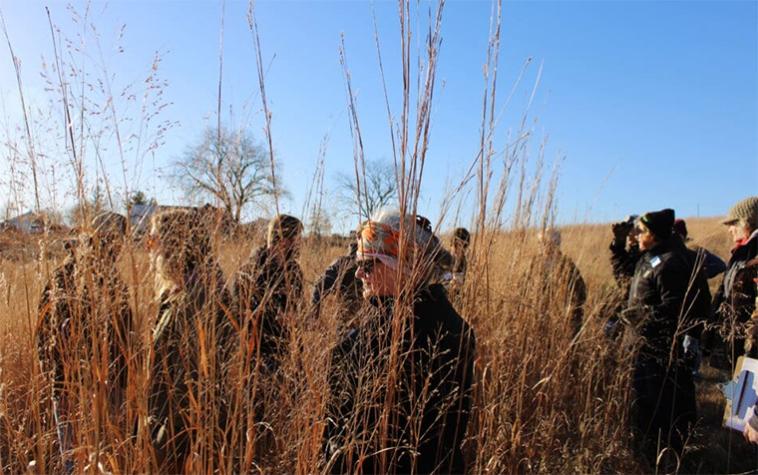Sessions will be held in Missouri, Kansas and Iowa.
COLUMBIA, Mo. – The Center for Regenerative Agriculture at the University of Missouri recently launched the Women Landowners Leading Regeneration (WLLR) project. It offers trainings and outreach activities available in Missouri, Iowa and Kansas.
WLLR project is designed to address the unique needs women landowners—those who own farmland but do not farm it themselves—by providing a supportive, peer-based environment to help them implement conservation practices on their land, said project co-leader Kelly Wilson, associate director of Center for Regenerative Agriculture.
“Women own roughly 25% of U.S. farmland—an estimated 354 million acres—but are often overlooked in traditional conservation outreach,” Wilson said. “Many women landowners want to steward their land in ecologically responsible ways but lack access to the information, networks and support they need. This project fills that gap.”
Wilson says WLLR is rooted in the Women Caring for the Land model, which uses a peer-to-peer learning circle approach proven effective in increasing women’s knowledge, confidence and ability to advocate for conservation outcomes on rented farmland. “About 70% of women who attend a Women Caring for the Land meeting will take an action to improve conservation on their land.”
The effort is about building bridges between women landowners and the conservation tools available to them, she says. “We’re not only seeing increased adoption of practices like cover cropping and reduced tillage, but we’re also witnessing women forming lasting networks of support that strengthen rural communities.”
“Through both in-person and virtual learning circles, we’re connecting women landowners with one another and with resource professionals who respect and understand their goals,” said project co-leader Olivia Caillouet. Caillouet says participants will become familiar with the learning circle model and learn about lease agreements that encourage regenerative farming. They’ll also learn about government-funded cost-share and incentive programs and about practices such as cover crops and conservation tillage.
The project is a collaboration of the University of Missouri, the Kansas Soil Health Alliance, E Resources Group, and the Women, Food and Agriculture Network. Partners include consultants Jean Eells and Rebecca Christoffel, who will lead trainings, and Jennifer Simmelink, executive director for the Kansas Soil Health Alliance.
Wilson and Calliouet recommend the training for conservation professionals, including extension staff and natural resource partners who work with women landowners.
Fall trainings
- Missouri: Tuesday, Oct. 21, Lakeside Nature Center, 4701 E. Gregory Blvd., Kansas City.
- Kansas: Wednesday, Oct. 29, Prairiewood at Blue Sage Barn, 1484 Wildcat Creek Road, Manhattan.
- Iowa: Wednesday, Nov. 12, Madison County Historical Museum, 815 S. Second Ave., Winterset.
The WLLR project will continue into 2026 and 2027 with learning opportunities tailored directly to women landowners in Kansas, Missouri and Iowa, Wison said.
Learn more about WLLR, or contact Wilson at kellyrwilson@missouri.edu or Caillouet at oliviacaillouet@missouri.edu.
